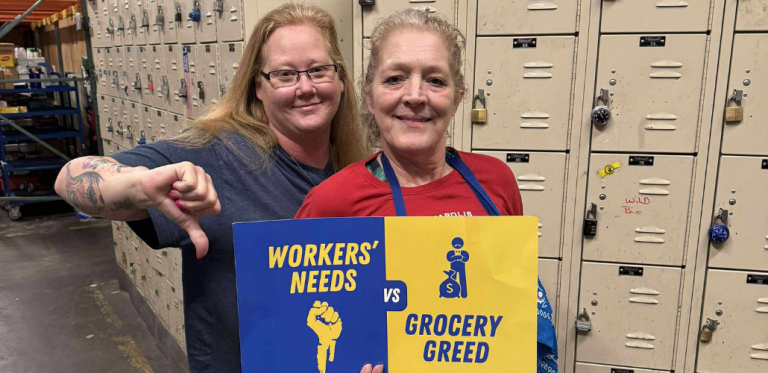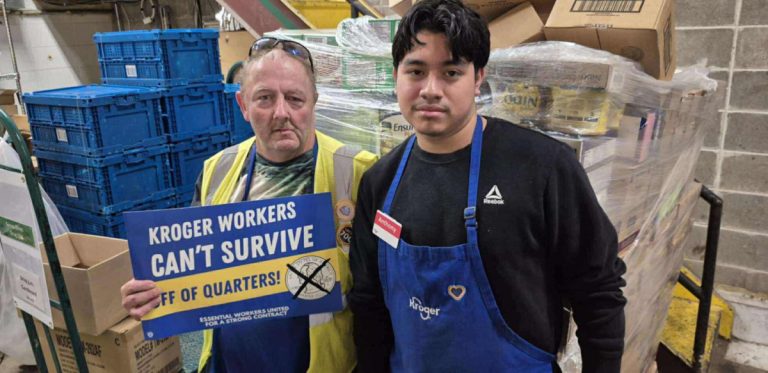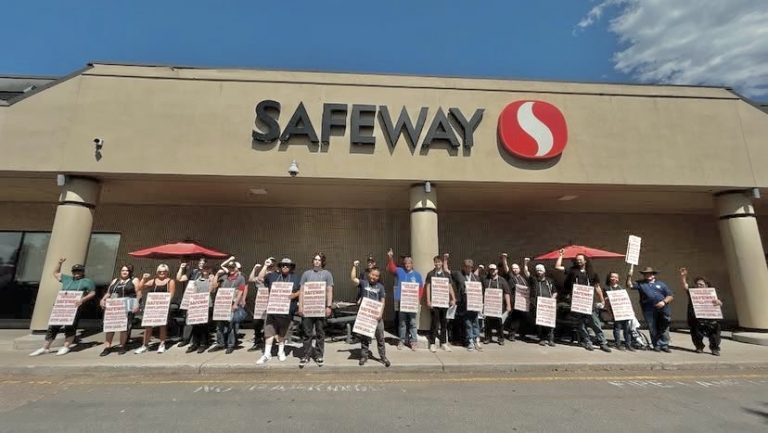SNAP Axe Could Fall On Grocery Shoppers And Workers Alike
Beginning November 1, 42 million Americans who rely on the Supplemental Nutrition Assistance Program, more commonly known as “food stamps,” are set to go without benefits. Among them are union members in underpaid industries like grocery and retail.
SNAP keeps millions of Americans and their families from going hungry. Due to the government shutdown, new SNAP funding has not been allocated by Congress, and existing funding has run out. This would be the first time in the program’s 61-year history that SNAP benefits have not been paid.
For years Congress has appropriated a SNAP contingency fund to cover emergencies like a shutdown. UFCW Votes, the United Food and Commercial Workers’ political arm, has launched a petition calling for the release of these funds, something the AFL-CIO and 25 other unions are also calling for.















